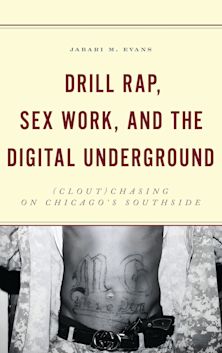Confronting Urban Legacy
Rediscovering Hartford and New England's Forgotten Cities
Confronting Urban Legacy
Rediscovering Hartford and New England's Forgotten Cities
This product is usually dispatched within 3 days
- Delivery and returns info
-
Free CA delivery on orders $40 or over
Description
Confronting Urban Legacy fills a critical lacuna in urban scholarship. As almost all of the literature focuses on global cities and megacities, smaller, secondary cities, which actually hold the majority of the world’s population, are either critically misunderstood or unexamined in their entirety. This neglect not only biases scholars’ understanding of social and spatial dynamics toward very large global cities but also maintains a void in students’ learning. This book specifically explores the transformative relationship between globalization and urban transition in Hartford, Connecticut, while including crucial comparative chapters on other forgotten New England cities: Portland, Maine, along with Lawrence and Springfield, Massachusetts. Hartford’s transformation carries a striking imprint of globalization that has been largely missed: from its 17th century roots as New England first inland colonial settlement, to its emergence as one of the world’s most prosperous manufacturing and insurance metropolises, to its present configuration as one of America’s poorest post-industrial cities, which by still retaining a globally lucrative FIRE Sector is nevertheless surrounded by one of the nation’s most prosperous metropolitan regions.
The myriad of dilemmas confronting Hartford calls for this book to take an interdisciplinary approach. The editors’ introduction places Hartford in a global comparative perspective; Part I provides rich historical delineations of the many rises and (not quite) falls of Hartford; Part II offers a broad contemporary treatment of Hartford by dissecting recent immigration and examining the demographic and educational dimensions of the city-suburban divide; and Part III unpacks Hartford’s current social, economic, and political situation and discusses what the city could become. Using the lessons from this book on Hartford and other underappreciated secondary cities in New England, urban scholars, leaders, and residents alike can gain a number of essential insights—both theoretical and practical.
Table of Contents
Chapter 1: Introduction: Once Prosperous and Now Challenged: Hartford's Transformation in Comparative and Global Perspectives
Part 1: Urban Past and Present in New England
Chapter 2: Hartford: A Global History
Chapter 3: Podunk after Pratt: Place and Placelessness in East Hartford, Connecticut
Chapter 4: “If We Would…Leave the City, This Would Be a Ghost Town”: Urban Crisis and Latino Migration in Lawrence, Massachusetts, 1945-2000
Part II: Social and Community Transformations
Chapter 5: Poverty, Inequality, Politics, and Social Activism in Hartford
Chapter 6: Investigating Spatial Inequality with the Cities, Suburbs, and Schools Project
Chapter 7: The Puerto Rican Effect on Hispanic Residential Segregation: Hartford and Springfield Metropolitan Areas in National Perspective
Chapter 8: A Metro Immigrant Gateway: Refugees in the Hartford Borderlands
Chapter 9: Re-Imagining Portland, Maine: Urban Renaissance and a Refugee Community
Part III: Renewing Hartford: Global and Regional Dynamics
Product details
| Published | Apr 15 2015 |
|---|---|
| Format | Paperback |
| Edition | 1st |
| Extent | 324 |
| ISBN | 9780739149430 |
| Imprint | Lexington Books |
| Illustrations | 12 b/w illustrations; 14 tables; |
| Dimensions | 229 x 152 mm |
| Publisher | Bloomsbury Publishing |
Reviews

ONLINE RESOURCES
Bloomsbury Collections
This book is available on Bloomsbury Collections where your library has access.



































